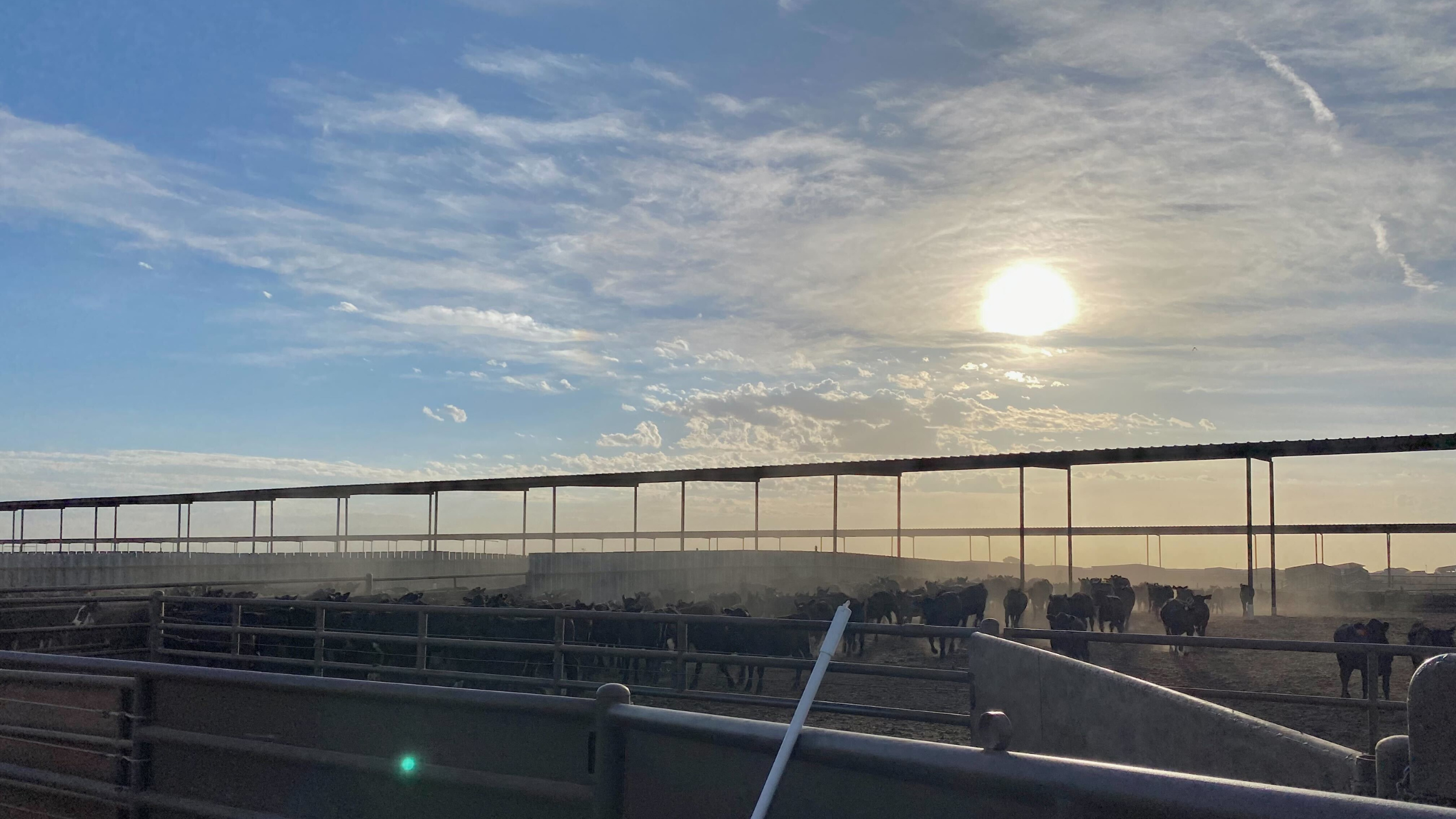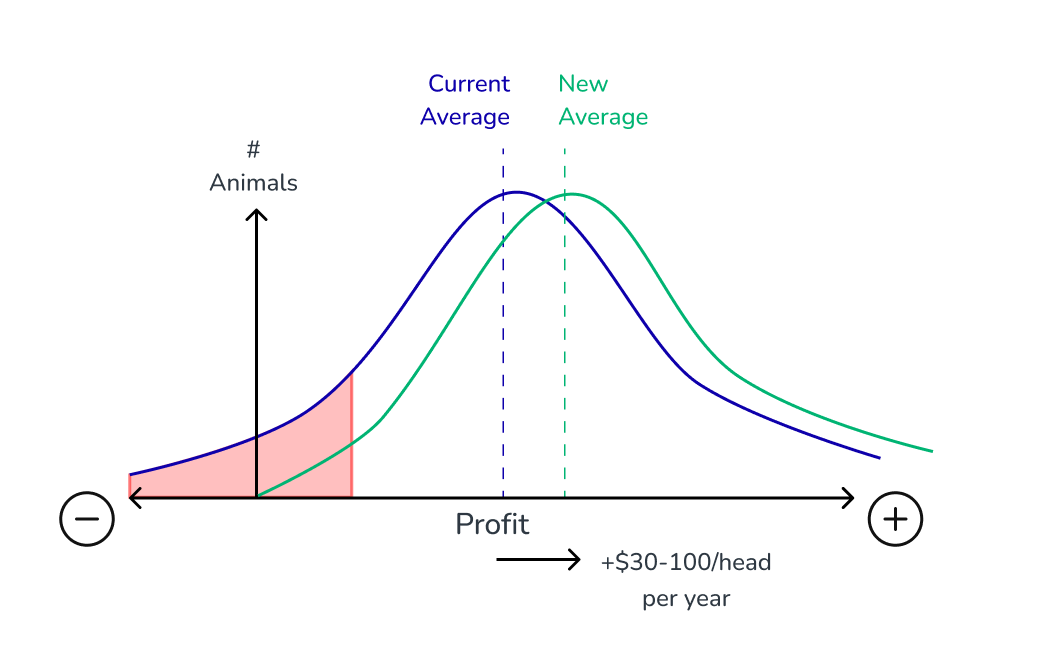Top producers are reaping the benefits of new data driven beef programs

Increasing environmental concerns is one of the key drivers of change in the beef industry. Integrated supply chains are streamlining beef production and contributing to their improved environmental footprint.
But what are the benefits to producers?
Joining a supply chain allows producers to maximize profit on their cattle enterprise wherever they sit in the chain. An effective supply chain allows feedback to be provided to producers up and down the chain in real time. When feedback lets you know what works, you can make improvement changes rapidly. Without this insight, decisions are being made blind or when it’s too late, once the carcasses are on the rail.
Traditionally animals with a black hide were seen as quality animals as they were assumed to be an Angus. However, in a supply chain with good data feedback you can delve further into the genetics and really look at which sire and dam are providing the most efficient animals and best quality carcasses. If you can prove the worth of the animal through exacting quality it is likely you will receive more for the finished product and everyone within the chain will reap the reward. A reliable and consistent product will be favoured by processors and retailers.
Average Weight Gain (AWG) and feed conversion can be improved through genetic selection. Choosing animals that have better feed conversion will save your lifetime feed costs. This, combined with higher AWG, will ensure the animals finish quicker saving you money and improving the environmental performance of the ranch.
In a 2022 Drovers article, Nevil Speer wrote "Investment in better genetics, management, research, and promotion have all proven to make a difference towards bolstering demand... As such, none of what we’re witnessing is just happenstance – it’s the result of an enduring commitment to continuous improvement. Those efforts are paying off: better business means better markets."
Closely monitoring production at every stage in the production chain will have a significant benefit to the environment and animal welfare, alongside animal health concerns such as antimicrobial use. Focusing on individual animal data to manage the variables that contribute to a high-performing and profitable animal at farm level allows you to become more efficient while producing a product that processors really want.
This leads us to how we do this, well firstly the individual matters, every time an animal is given a vaccination or check up it is an opportunity to capture data and learn, with data on the individual the key, to make a step change in our own profitability as ranchers we need to move the bell curve, remove under performers (in red), and we can only do this with data.
 Helping improve profit for ourselves, collecting data that can be used to sell the animal for a premium in future and then actually receiving data back from the supply chain that matters as the animal is now traceable.
Helping improve profit for ourselves, collecting data that can be used to sell the animal for a premium in future and then actually receiving data back from the supply chain that matters as the animal is now traceable.
At Breedr we focus on capturing data and analyzing on ranch to be easier than pen and paper. This is where it starts, with a focus on supporting the rancher first.
Ian Wheal, Founder of Breedr.
Breedr is supporting producers and Meat buyers to build higher quality, more sustainable beef supply chains across the US, UK and Australia
See also: How are supply chains changing the global beef industry?




